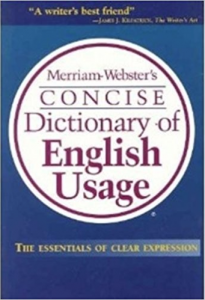 Dictionaries are for looking up the meaning of words, right?
Dictionaries are for looking up the meaning of words, right?
True. But there are other kinds of dictionaries that are just as valuable. Dictionaries that explain not just words, but whole concepts.
Here are four of my favorites—ones that I use almost every week at work.
The American Heritage Dictionary of Idioms. Ever wondered why we say that a clean house is spick and span? Or why we say that an older person is over the hill? This dictionary will tell you why. It catalogs the quirky, idiomatic phrases we use every day and explains their derivation and history.
Stedman’s Medical Dictionary. Stedman’s is a critical resource for anyone who does medical editing or medical writing. It provides definitive information on how to handle more than 107,000 terms and definitions, across all of the major medical and health science specialties. Need to know where the hyphens go in antibody-dependent cell-mediated cytotoxicity? Whether it’s Alzheimer’s disease or Alzheimer disease? Or whether the C is capped in Colles fracture? Stedman’s has your answer.
Merriam-Webster’s Concise Dictionary of English Usage. A standard dictionary provides the meaning of various words. But it often can’t explain when or how to use them. This one does. For example, want to know when to use lay versus lie? Credible versus credulous? Awhile versus a while? MWCDEU has got your answer.
Oxford Dictionary of Science. We do a lot of technical writing and science writing here at Dragonfly. And when I’m trying to get my head around a new topic, this is one of the first places I turn. This dictionary holds more than 9,500 entries related to chemistry, physics, biology, earth sciences, and astronomy. I mean, how would I have learned what anode sludge is without it?
There are so many cool dictionaries out there, and these are just a few of my favorites. Tell me some of your favorites, won’t you?
Samantha Enslen runs Dragonfly Editorial.
7 Ways To Spice Up Your Content Creation
Dive into AI’s creative potential with 7 unique prompts that will transform your writing and

